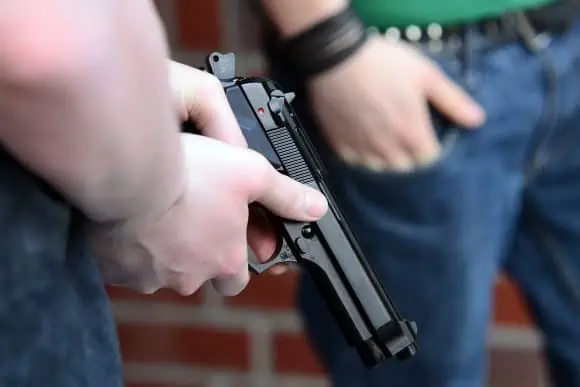There are many good reasons to own a firearm, but if you’ve never bought a weapon before—or if you’ve never even fired one—you may feel intimidated. There are thousands of options to choose from, and as a newcomer, you may not be able to distinguish between them easily.
However, buying your first firearm can be a very rewarding experience, and introduce you to a weapon you can continue using for years. In this guide, we’ll cover the most important features to look for, and how to select your first firearm.
Why Do You Want a Firearm?
First, you should have a clear understanding of why you want a firearm. Your intended purpose may dictate the features you look for.
These are some of the most common reasons people buy firearms:
· Target practice. You might want a gun strictly to improve your marksmanship, or you may want to join marksmanship competitions. Taking a weapon to a firing range can be exhilarating and improving your aim over time can be even more rewarding.
· Hunting. Some people purchase weapons for hunting. Whether for food or for sport, firearms can improve any hunting experience.
· Personal protection. Commonly, people purchase firearms for personal protection. They may want to defend their homes with a gun in a bedroom safe or carry a weapon that can protect them at all times.
· Collecting. Other people like to buy firearms just for the sake of collecting them. They like the aesthetics of these weapons or appreciate the stories behind their creation.
Features to Consider
What features should you consider when buying a firearm?
· Size. One of the first things you’ll notice about a weapon is its size. Big weapons tend to be capable of doing more damage, and they may have greater accuracy or other features that make them suited for specific purposes (like hunting). Smaller weapons tend to be lighter and easier to carry. There are strengths and weaknesses to each.
· Potential uses. Some weapons are designed with specific purposes in mind, while others are made for general use. For example, you may want a weapon that’s designed specifically for hunting, or one that’s made for self-defense. If you’re not sure what you want, you may want a more versatile weapon.
· Versatility. Versatile weapons are able to serve a variety of different functions. For example, the AR-15 rifle is one of the most diverse firearms ever made. It can be used at short ranges and long ranges. It’s highly regarded in marksmanship communities. It can be used for hunting or self-defense as well. It’s kind of a jack-of-all-trades in the firearm world.
· Accuracy and precision. Some weapons tend to be more accurate and/or more precise than others. You can tweak a weapon to improve it, but some weapons have hard limits you’ll have to deal with.
· History. If you like to collect weapons, you may be interested in learning the history of specific types of firearms. For example, you may want to purchase a firearm that has a long and celebrated history or buy one that’s associated with the military. You may also prefer to buy an antique weapon or one that’s no longer in active circulation.
· Ease of use. New firearm purchasers should be especially concerned with ease of use. How easy is it to pick up this weapon and fire it? Is it clear how to fire the weapon and store it safely? Confusing or complicated weapons can be both frustrating and dangerous for amateurs.
· Ease of maintenance. You’ll need to maintain your weapon regularly if you want it to stay in good condition. So how easy is it to maintain this firearm? Can you take care of minor repairs and simple maintenance on your own?
· Modularity. Modularity refers to the ease of adding or removing weapon mods; some weapons are easier to modify than others. You may want a customizable weapon if you want to add your own grips or stocks, or if you want to add a different set of sights.
· Aesthetics. Some people like to buy weapons because of how they work. Aesthetics aren’t going to impact functionality, but it may be a factor worth considering as part of your decision.
· Cost. Finally, you’ll need to consider the cost of the firearm. If you have a strict budget, you may have a difficult time getting a weapon that suits all your needs.
It’s up to you to decide which of these features are most important, and what you’re willing to compromise on when buying your first firearm. There’s no such thing as a perfect weapon (though some models come pretty close), so take your time, test some weapons at the firing range, and try to enjoy the learning experience.
